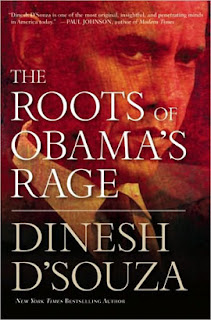 |
Martin Luther taught that we are
justified by faith alone,
not by faith plus works
|
I frequently run into the idea that Roman Catholics can’t be saved unless they trust wholly in Christ for salvation. If a Roman Catholic is trusting in Christ plus works, then he can’t be saved.
In the latter article I quote Douglas Wilson who makes an important contribution to this question by pointing out that justification by faith can work even in someone who doesn't have a correct theology of justification by faith.
"…justification by faith is not accomplished by affirming or believing in justification by faith. Believing the doctrine of justification by faith alone as a way of being justified is a fine way of actually denying the doctrine of justification by faith alone. We are not saved by works — ethical or theological. We are not saved because we got better than a ninety on the ethics quiz, or over a ninety-five on the justification section of the theology exam."
Now certainly, if Sola Fide (the doctrine that we are justified by faith alone and not by faith plus works) is true, then to deny it is to lack perfect faith. Yet can any one of us really claim to have perfect faith? Evangelicals frequently hold meetings where someone will testify that they learned to make Christ Lord of some new area of their life. Well, what does that mean other than that such a person realized by God’s grace they were trusting themselves, and not Christ, in some important area of their life? The person had imperfect faith, but that does not mean they had no faith at all. Similarly, in matters relating to salvation, even staunch five-point-its-all-by-grace Calvinists can fall into the trap of unconsciously trusting in themselves rather than Jesus. But this lack of perfect faith does not mean that the person in question cannot be saved. As the judicious Hooker put it in A Learned Discourse on Justification,
They be not all faithless that are either weak in assenting to the truth or stiff in maintaining things any way opposite to the truth of Christian doctrine. But as many as hold the foundation which is precious, although they hold it but weakly and as it were by a slender thread, although they frame many base and unsuitable things upon it, things that cannot abide the trial of the fire, yet shall they pass the fiery trial and be saved, who indeed have builded themselves upon the rock which is the foundation of the Church.
Part of the problem here is that the reformed doctrine of “justification per fidem propter Christum” (justification by faith on account of Christ) has morphed into its parody “justification propter fidem per Christum,” (justification on account of faith through Christ). While the difference is subtle, the second actually leads to a denial of the historic Protestant doctrine, as Douglas Wilson showed in the quotation above.
Certainly if Sola Fide is true, then to deny it is to lack perfect faith, but is this the same as lacking true faith? The father of the boy with seizures in Mark 9 expressed faith in Jesus’ power to help his son, yet in the same breath he confessed to struggling with unbelief (Mark 9:24). Even in the best of us, our faith is faulting and imperfect, tinged with a pride in our own self-righteousness.
Sola Fide affirms that if a person is saved, it is only because of Christ and His finished work, mediated to us through our faith, and that all other things are irrelevant. The ‘all other things’ include imperfections in and misunderstand about faith itself. The Protestant who really believes Sola Fide is thus released from having to assume that the efficacy of a person’s faith is dependent on a person having a correct theology about faith.
The same point can be made by way of analogy. A person can die of microbiological poisoning without believing in microbiology, as was the case until comparatively recently in human history. Likewise, a person can experience the results of living on a heliocentric planet without believing in Heliocentrism, as is still the case for some primitive peoples. Similarly, a person can be saved by faith alone without believing in justification by faith alone, as everyone agrees is the case with children and mentally handicapped individuals.
If we can get this simple fact straight, there are enormous implications for the ecumenical agenda. The Protestant is released from having to assume that the efficacy of a person’s faith is based on that person having to agree with his theology of justification. This releases Protestants to rejoice in the faith of those (such as Roman Catholics) who hold to a different theology of faith. It can enable there to be common ground between those who affirm Sola Fide and those who do not since it shows that Roman Catholics can be saved even if they trust in their works for salvation (assuming they are trusting in Christ as well).
____________
Read my columns at the Charles Colson Center
Read my writings at Alfred the Great Society
To join my mailing list, send a blank email to robin (at sign) atgsociety.com with “Blog Me” in the subject heading.
Click Here to friend-request me on Facebook and get news feeds every time new articles are added to this blog.












